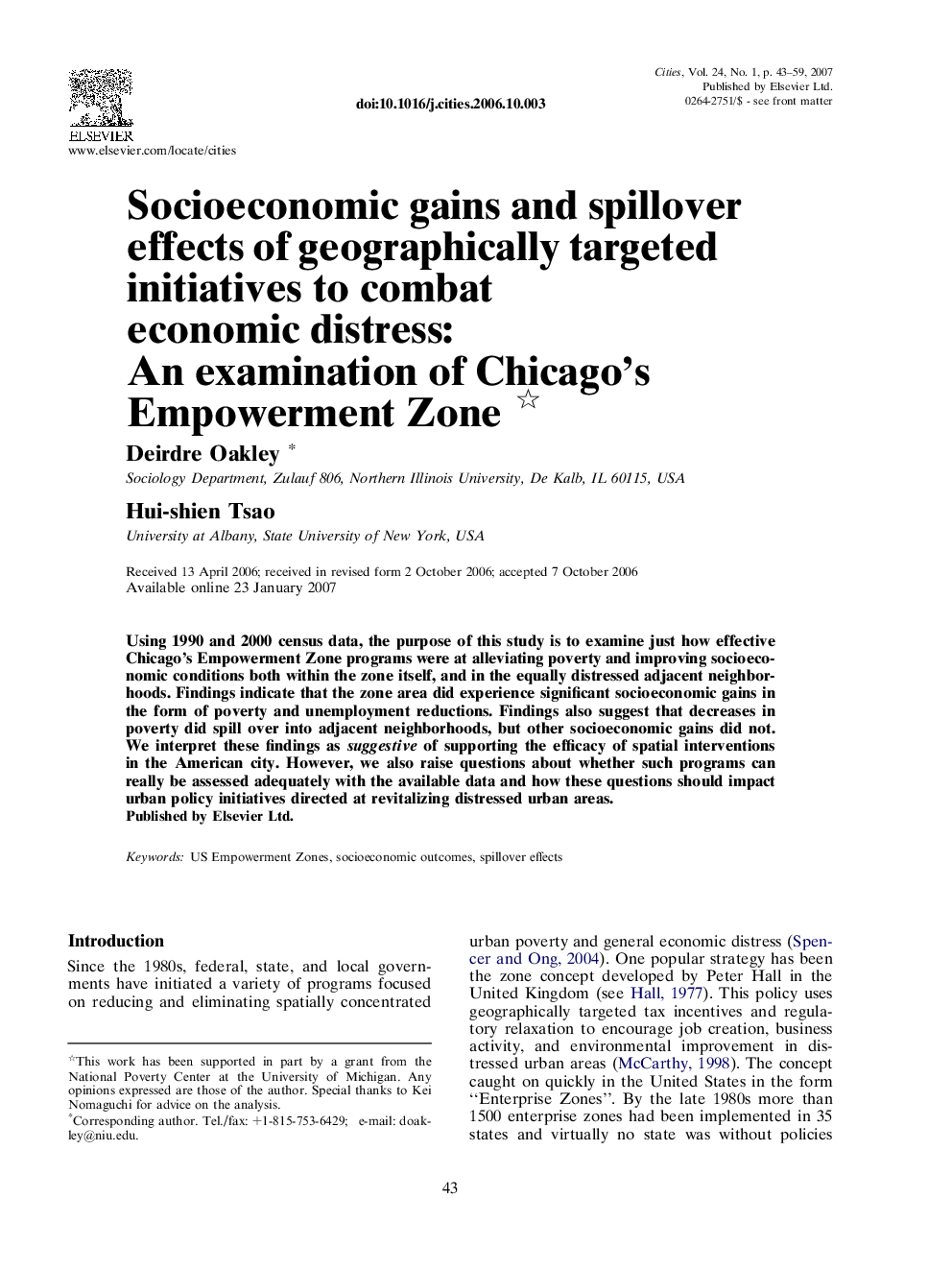| Article ID | Journal | Published Year | Pages | File Type |
|---|---|---|---|---|
| 1008863 | Cities | 2007 | 17 Pages |
Using 1990 and 2000 census data, the purpose of this study is to examine just how effective Chicago’s Empowerment Zone programs were at alleviating poverty and improving socioeconomic conditions both within the zone itself, and in the equally distressed adjacent neighborhoods. Findings indicate that the zone area did experience significant socioeconomic gains in the form of poverty and unemployment reductions. Findings also suggest that decreases in poverty did spill over into adjacent neighborhoods, but other socioeconomic gains did not. We interpret these findings as suggestive of supporting the efficacy of spatial interventions in the American city. However, we also raise questions about whether such programs can really be assessed adequately with the available data and how these questions should impact urban policy initiatives directed at revitalizing distressed urban areas.
